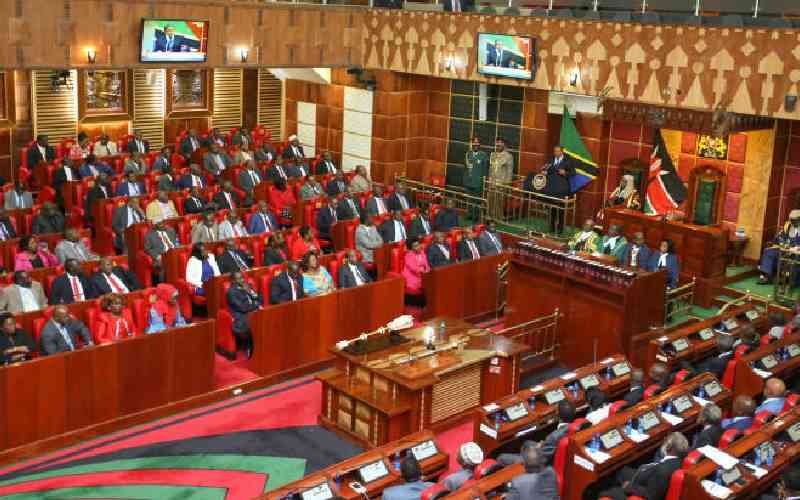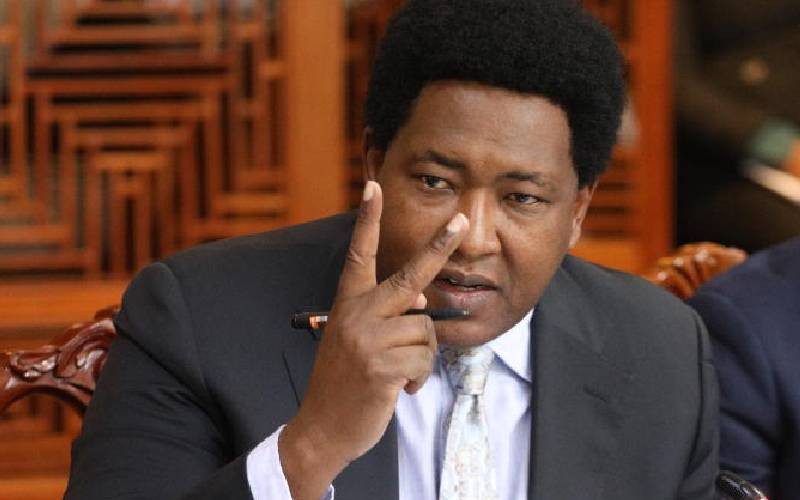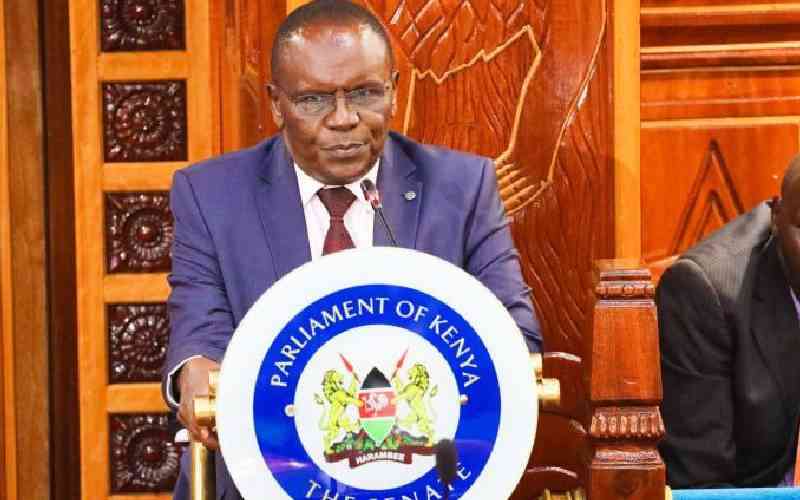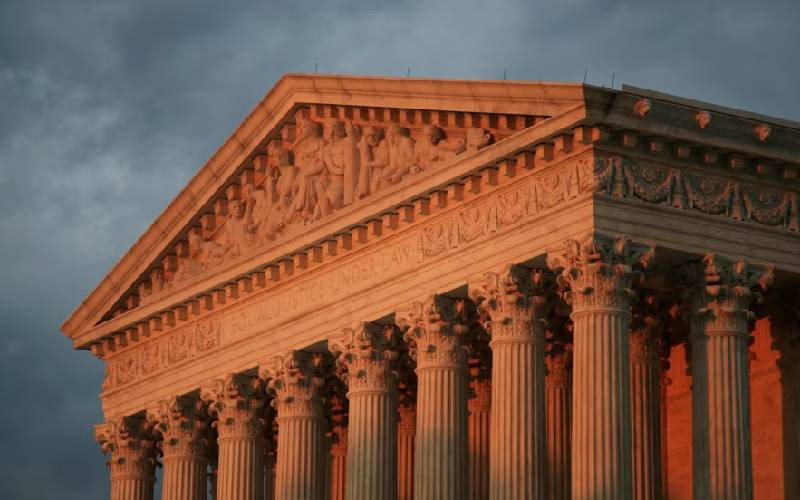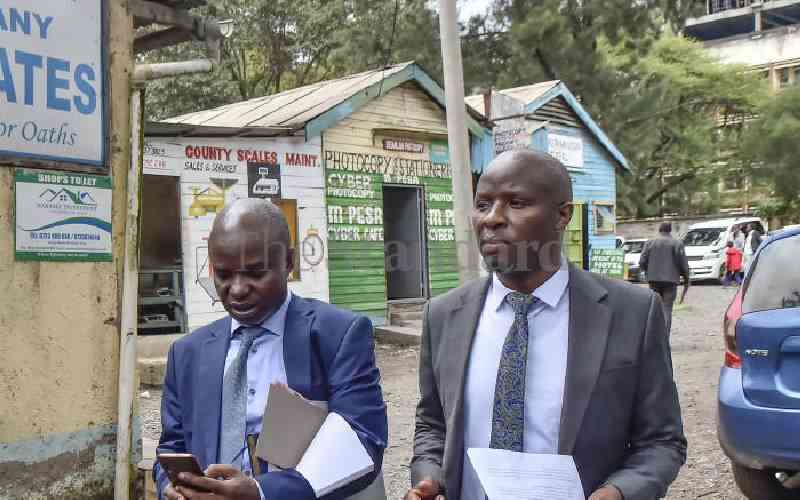By Roselyne Obala and Tobias Chanji
Kenya: Governors have been challenged to honour summonses by the Senate and avoid giving detractors a chance to undermine devolution.
Commission for the Implementation of the Constitution (CIC) chairman Charles Nyachae said there were agents who were not excited about devolution and warned governors not to play into their hands.
“Governors should not play into the hands of those who want to weaken devolution. Don’t give them an opportunity by refusing to honour summonses,” he cautioned.
Nyachae called on governors and Parliament to avoid sideshows and instead focus on legitimate matters that affect the seamless implementation of devolution.
“I am sure governors are smart people and if they accept to fall victim in the hands of those out to thwart devolution, they will have no one to blame but themselves,” he advised.
He noted that despite the county bosses moving to the Supreme Court to seek advisory on the matter and obtaining temporary injunction barring the Senate from summoning them, they must be accountable to Kenyans.
He noted that governors have been accused over misappropriating funds in their respective counties following their refusal to honour summonses by the Senate.
“Let us not confuse issues, governors’ failure to appear before Senate committees has been misunderstood by others to means, they are against being held accountable,” he argued.
He continued: “This has created an opportunity for some people to accuse governors of refusing to be accountable yet accountability is part and parcel of the devolution process.”
He sought to clarify that noted articles 125 and 226 of the Constitution are distinct and therefore the governors should not argue that Parliament lacks the powers to summon them.
Give evidence
The chairman explained that Article 125 states that Parliament, or any of its committees, has the power to summon any person to appear before it for the purpose of giving evidence or providing information.
The governors have argued that in the case of responding to alleged mismanagement of resources in their respective counties, Article 226 (b) which requires that an accounting officer in every public entity at the national and county level of government applies.
Nyachae, however, differed with argument and instead insisted that the two articles he made reference to have distinctive jurisdiction and therefore they should honour the summonses.
Stay informed. Subscribe to our newsletter
Nine governors were summoned to appear before the Senate Finance and Budget Committee chaired by Billow Kerrow following a damning report by Controller of Budget Agnes Odhiambo on counties’ expenditures.
Nyachae, however, stated that county governments have been on the spot lately due to level of interest and enhanced public participation.
“By governors explaining and clarifying with facts and figures on any queries by independent offices, they will clear doubts of mismanagement of funds,” Nyachae advised.
Council of Governors (CoG) chairman Isaac Ruto and Wajir Governor Ahmed Abdullahi Mohammed affirmed that they are ready to be held accountable.
“We are very transparent in terms of expenditure and this has enhanced accountability. This is a positive step,” said Ruto.
Nyachae referred to Article 6 of the Constitution, which states that the two levels of governments are distinct and inter-dependent and shall conduct their mutual relations on the basis of consultations and co-operation and cautioned that if this is breached, devolution will be in danger.
Ruto reaffirmed that counties will continue to engage the Government and, if possible, initiate the process themselves as governors.
He said the conference had given stakeholders an opportunity to reflect on the success of the devolved system of governance and commit themselves to the devolution promise.
Mombasa Governor Hassan Joho downplayed the absence of the Executive saying the conference had achieved its purpose
“The conference is a success. We are able to discuss benchmark and exchange ideas, which are a constitutional requirements,” he said.
 The Standard Group Plc is a
multi-media organization with investments in media platforms spanning newspaper
print operations, television, radio broadcasting, digital and online services. The
Standard Group is recognized as a leading multi-media house in Kenya with a key
influence in matters of national and international interest.
The Standard Group Plc is a
multi-media organization with investments in media platforms spanning newspaper
print operations, television, radio broadcasting, digital and online services. The
Standard Group is recognized as a leading multi-media house in Kenya with a key
influence in matters of national and international interest.
 The Standard Group Plc is a
multi-media organization with investments in media platforms spanning newspaper
print operations, television, radio broadcasting, digital and online services. The
Standard Group is recognized as a leading multi-media house in Kenya with a key
influence in matters of national and international interest.
The Standard Group Plc is a
multi-media organization with investments in media platforms spanning newspaper
print operations, television, radio broadcasting, digital and online services. The
Standard Group is recognized as a leading multi-media house in Kenya with a key
influence in matters of national and international interest.

